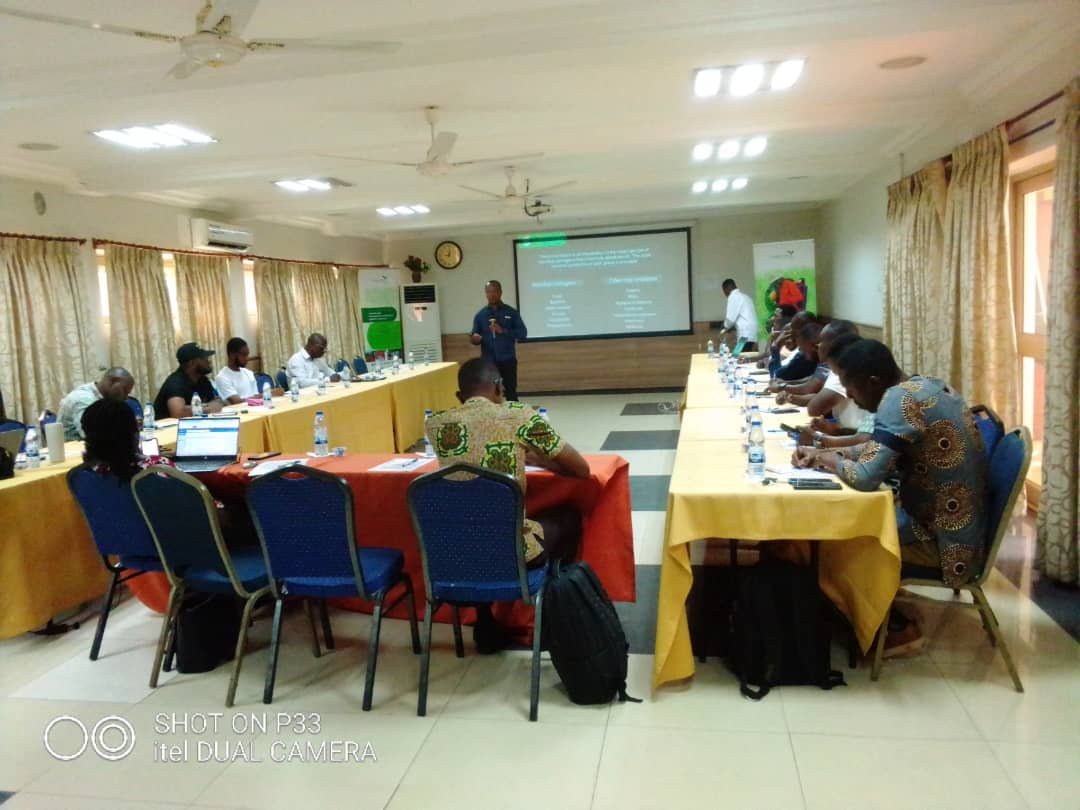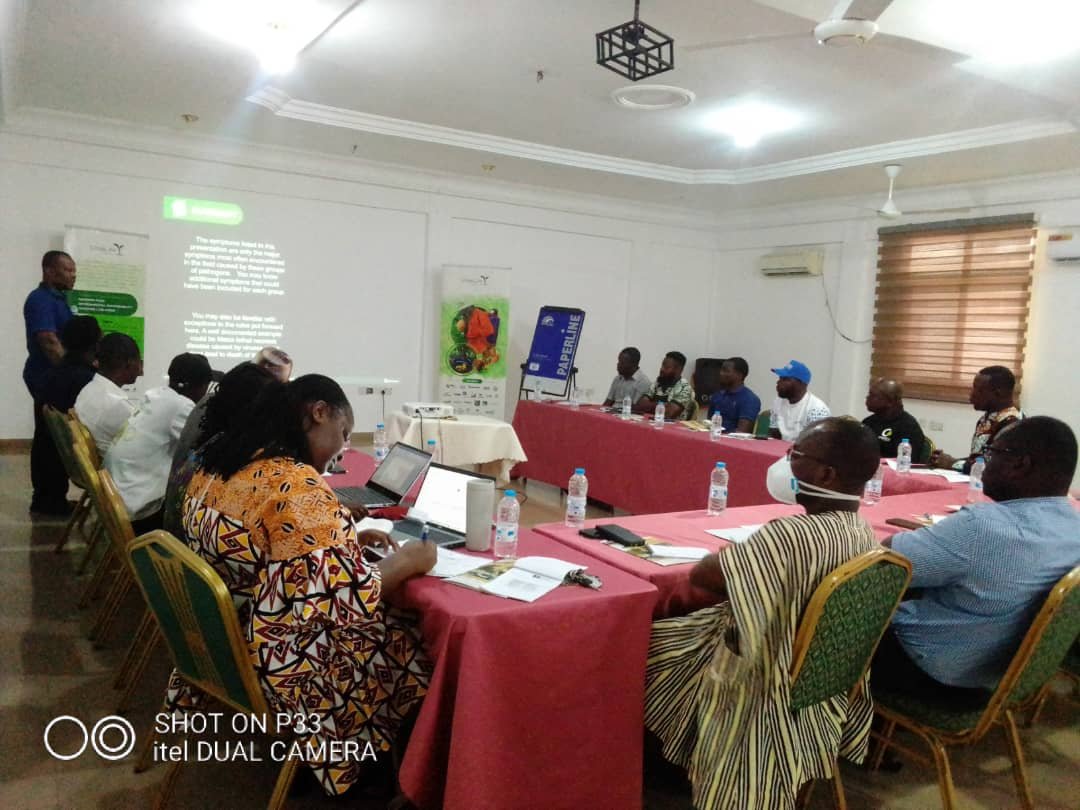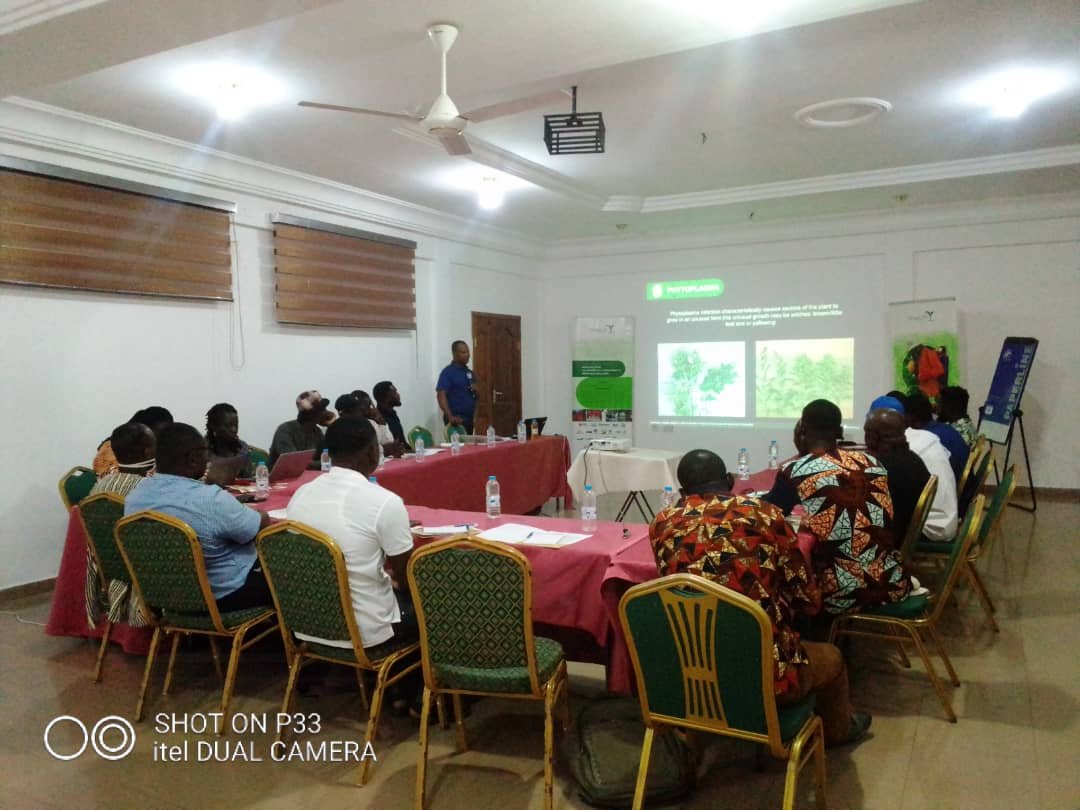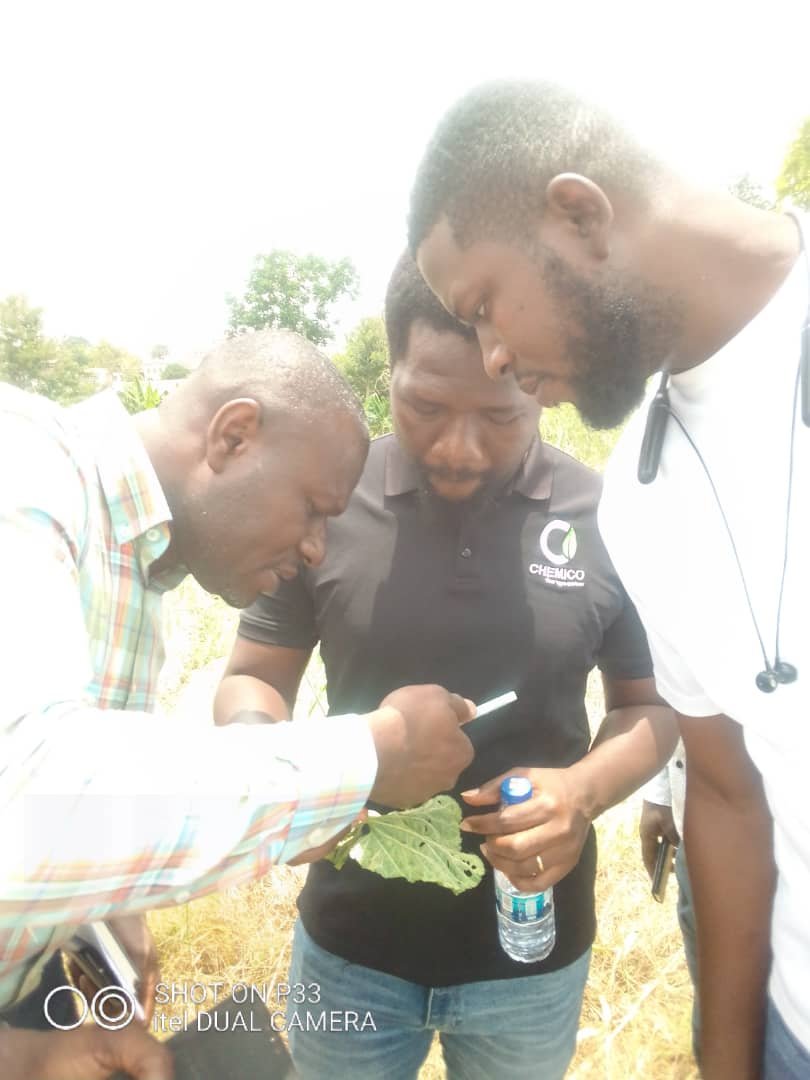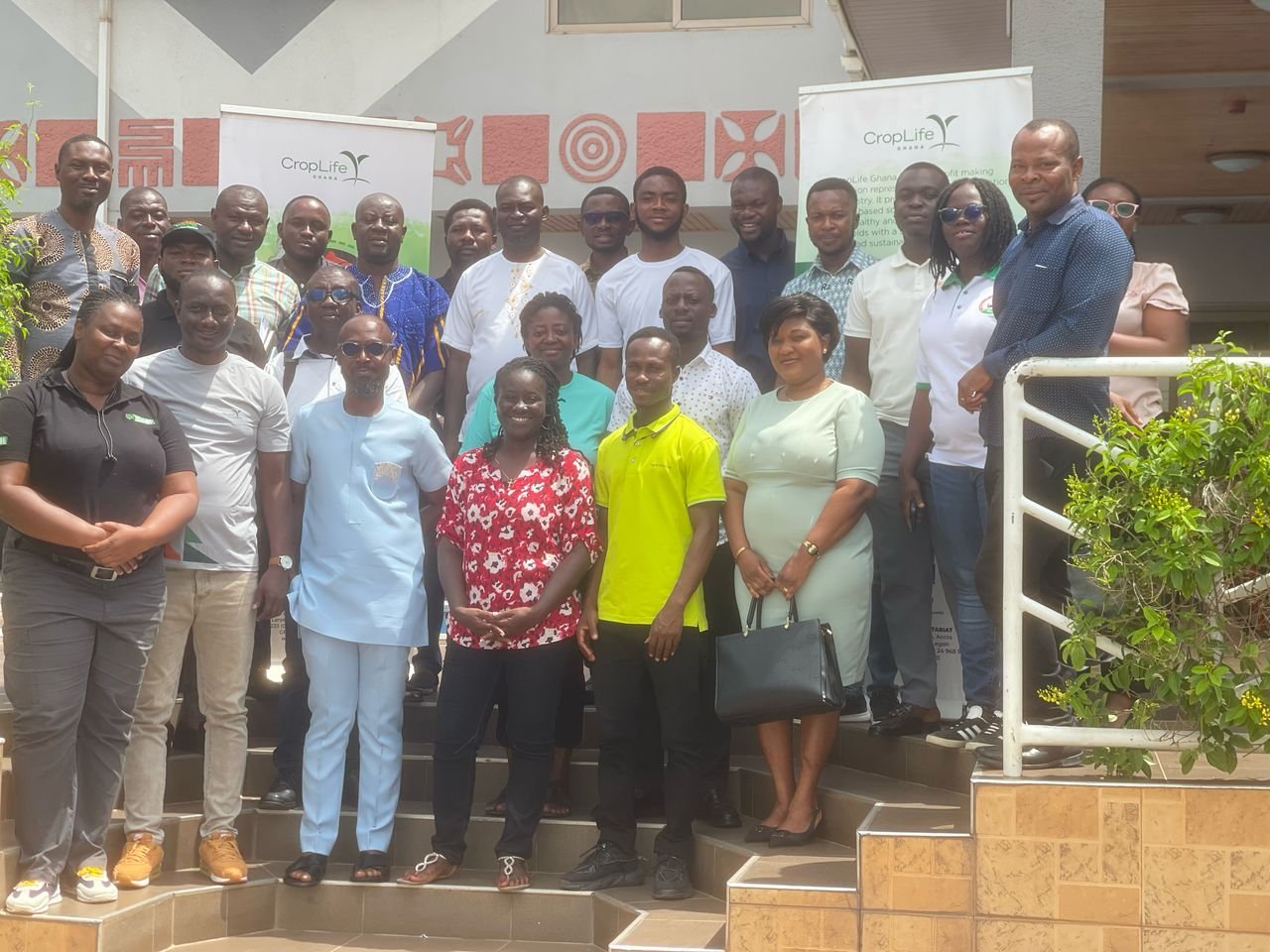A dedicated team from CropLife Ghana led by their President Mr. Bernard Okutu engaged in a constructive dialogue with the Honorable John Dumelo, the Deputy Minister for Food and Agriculture.
The primary focus of this meeting was to underscore the critical importance of actively involving industry stakeholders in order to ensure the successful implementation of the Feed Ghana Programme, as well as other pertinent government initiatives within the agricultural sector.
CropLife Ghana is an association of Manufacturers, importers and distributers of pesticides, fertilizers and other agric inputs in Ghana with a total membership of 23 companies and counting. CropLife Ghana acts as an ambassador for the plant science industry, encouraging understanding and dialogue whilst promoting sound science and agricultural technology in the context of sustainable development.
CropLife Ghana is affiliated to CropLife Africa Middle East (CLAME) and CropLife International.
Our members include RMG Ghana Limited, BASF Ghana, Corteva, Rainbow Agrisciences, Chemico Ghana, Solevo Ghana, AgroHao Company Limited, AgroCrown West Africa Company Limited, Adama West Africa, Calli Ghana, Bayer WCA, Dizengoff Ghana, Crop Doctor, Bentronics Agrochemicals Ltd, Kumark Agrochemicals Ltd, The Candel Ghana, Yara Ghana, Overseas Warehouse, Wynca Sunshine, Jubaili Agrotec Limited, Afcott Ghana Limited, Reiss & Co. Ghana and Bon Agro Limited.
During the discussion, a variety of significant issues were addressed, including the urgent need to expedite the processing of tax exemption documents related to agricultural inputs. It was emphasized that streamlining this process is essential to alleviate the logistical challenges currently faced at the ports. By doing so, we can significantly enhance the ability of our member companies to deliver essential agricultural inputs to the farming community, thereby supporting food production and agricultural sustainability.
CropLife Ghana remains steadfast in its commitment to ensuring that high-quality agricultural inputs are accessible to every farmer throughout the nation. Through the collaborative efforts of our member companies, we aim to empower the agricultural sector and contribute to the overall growth and development of Ghana’s food security landscape.



